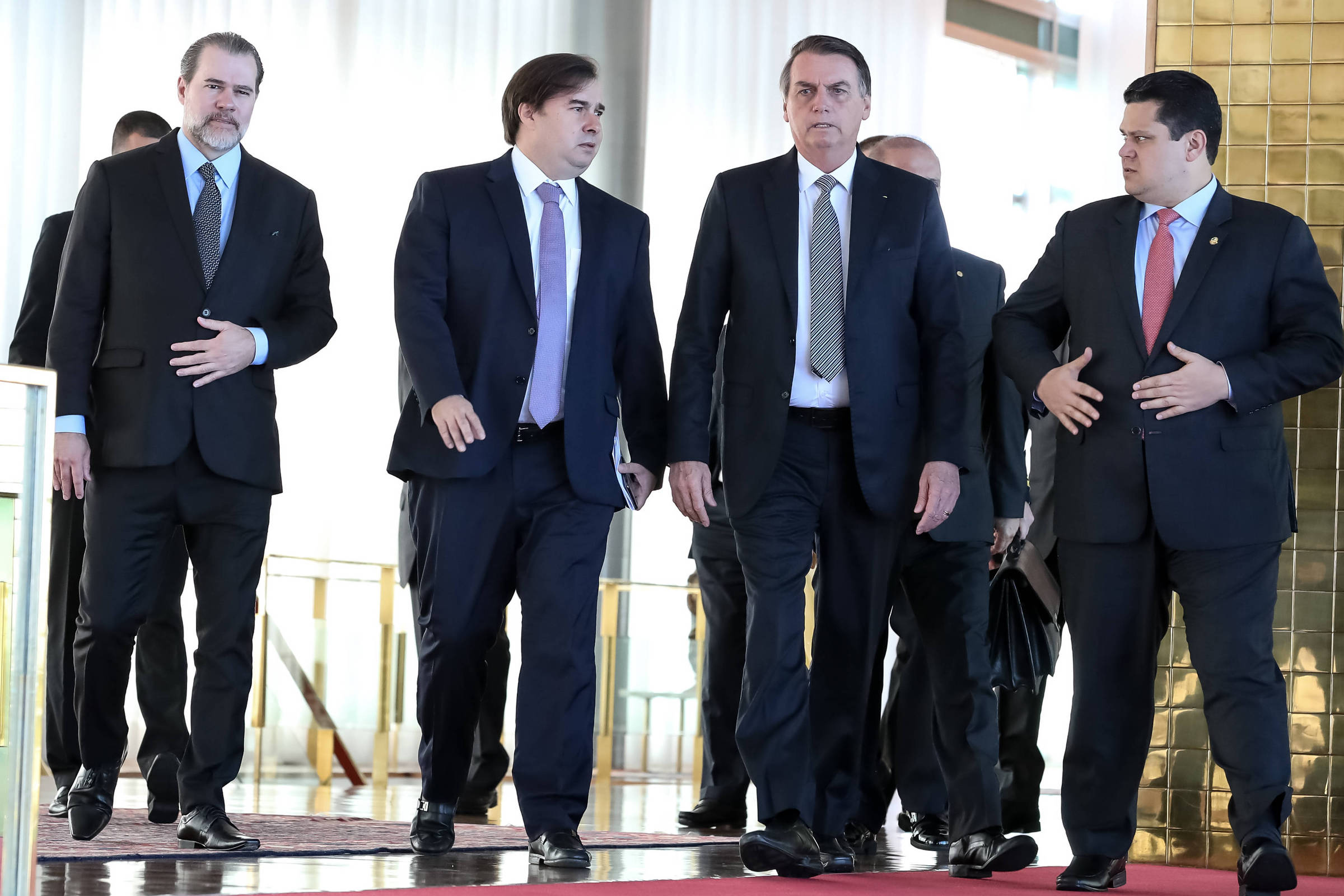RIO DE JANEIRO, BRAZIL – No one knows for certain how earnest and lasting Jair Bolsonaro’s transition to moderation is, but it is undeniable that the President of the Republic’s change of stance has yielded positive results. One of them occurred in the relationship between the Planalto Palace and Congress.
By abandoning attacks and attempts at intimidation against legislators, the government has eased the processing of bills such as the new sanitation law and the renewal of the Fund for Maintenance and Development of Basic Education (FUNDEB).
In both instances, the differences on the substance of proposals were settled in the vote, as democracy dictates, with no Ministers or Bolsonarist deputies accusing legislators of impropriety, as was the case on previous occasions.

The trend is that this republican debate will be repeated in another key initiative for the country, the tax reform, which has returned to the legislative agenda after months of being stalled.
Attempted in past governments, the approval of the tax reform will not be easy. Everyone agrees that the initiative is vital to simplify the taxpayer’s life and reduce the so-called ‘custo-Brasil’ (Brazil cost, the increased operational costs associated with doing business in Brazil). The problem is that this consensus over the problem is coupled with profound differences on its solution.
Minister of Economy Paulo Guedes advocates the introduction of a digital transaction tax to counterbalance an exemption from other taxes. In times of radicalization, the simple suggestion of creating a tax model similar to the former CPMF (known as the “tax on checks”) blocked the debate. However, there are now congressional deputies willing to discuss the proposal, which represents progress.
With Bolsonaro and his Ministers sitting at the negotiating table, the dispute will be settled in the voting. “With the appeased political tempers, the more complex issues began to be analyzed with greater ease,” says Senator Eduardo Gomes, the government’s leader in Congress. “This is the result of maturation and of a relationship that is gradually distancing itself from the post-electoral campaign mood,” he adds.
The effects of this accommodation have already been perceived in other areas. In his first trip after he had recovered from the coronavirus, the President visited Brazil’s Northeast, accompanied by a group of deputies from the region, and made a point of announcing the name of each one in the microphone and stressed the importance of governing alongside the Congress. The practice, he said, should become routine.
“The president has changed. In the last two months, he has been much calmer and his growth in popularity is impressive,” says Senator Ciro Nogueira, one of the leaders of the parliamentary bloc known as Centrão.
An expert in sensing political opportunities, the deputy is enthusiastic about the partnership: “In my state, there are cities where the president had 70 percent rejection and 20 percent approval. Today it’s 50/50. You can make a note of this: Bolsonaro will reach the 2022 elections with percentages very close to those Lula has achieved in the Northeast,” he says.
Political scientist Leonardo Barreto points out that, since the peaceful relationship between the government and Congress is recent, there has not yet been time to establish a joint agenda. But the benefits, according to the director of Vector Analysis, are remarkable in several areas: “The Executive is now in a position to block the explosive “H-bomb” agendas, which in other situations could be passed, thus creating a climate of instability,” he says.
It is a fact that the rapprochement was a movement guided more by necessity than by wisdom. The escalation of the crisis among the powers created institutional tension and tremendous strain on the government, compounded by the coronavirus pandemic and its consequences.
“The result is that the efforts to annul Bolsonaro’s mandate have been reduced, the government has somehow managed to restart talks to make reforms and thus has preserved the President’s political capital in the midst of the economic and public health crisis,” says political scientist Rafael Cortez of Tendências Consultancy.
For most of his term thus far, Bolsonaro has faced hardship with Congress. Even government leaders accept that the threat of impeachment and the imprisonment of Fabrício Queiroz, the presidential family’s handyman, were decisive in changing the President’s stance.
When Bolsonaro was betting on radicalization, the debate about his removal was taking place in the talking circles in Brasília. Now, given the pacification, the hatchet seems to have been definitely buried. Last week, Chamber president Rodrigo Maia rejected the opening of an impeachment process. According to him, there is nothing to warrant the measure.
Senate president Davi Alcolumbre never considered such a prospect. With the Three Powers Square in serene mood, both Maia and Alcolumbre are considering the chance of leveraging the current accommodation.
The two do not publicly concede this, but they wish to be reinstated to their respective positions heading Congress. The Constitution forbids such re-election, but the two do not rule out a last-minute political arrangement to overcome this obstacle. It could be so. The new winds in Brasília seem to favor stability.
Source: Veja

